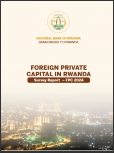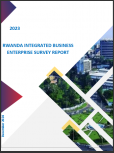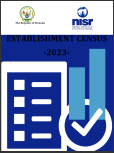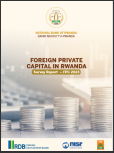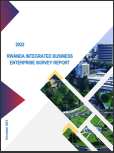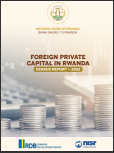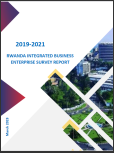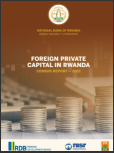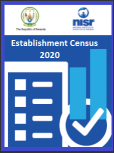Foreign Private Capital 2024 - Survey Report
The 2024 Foreign Private Capital (FPC) survey highlights Rwanda’s status regarding Foreign private investment and ongoing commitment to attracting foreign investment. Key findings from this year’s survey indicate a significant increase in the Foreign Private Capital inflows, which rose by 33.8 percent to USD 886.9 million in 2023, mainly resulting from an increase in the Foreign Direct Investment inflows of 44.3 percent, amounting to USD 716.5 million.
Integrated Business Enterprise Survey (IBES)-2023 Report
This report provides information on the operational characteristics of enterprises engaged in different economic activities across the country. This survey focuses on the business environment, transactions, employment, and perception; all of which are interconnected with the operations of business enterprises. The performance of these entities is analyzed in relation to the overall economic structure of the country.
Rwanda FinScope 2024 report
This report provides valuable insights into our progress highlighting the importance of current strategies and initiatives in driving financial inclusion. Notably, Rwanda has achieved an impressive 96% financial inclusion rate, with formal inclusion at 92%, surpassing the NST1 target of 90% by 2024.
Establishment Census Report, 2023
The Establishment Census is a valuable source of information on all economic activities by size, formal and informal status of establishments in Rwanda. It provides information that is used to classify establishments according to their size (micro, small, medium, and large) but also formal and informal establishments. The methodology used for data collection and data analysis is quite similar and this helps in comparative analysis with the previous establishment censuses.
Foreign Private Capital 2023 - Survey Report
The FPC 2023 survey covered 384 enterprises, of which 329 responded, representing a response rate of 85.7 percent. The findings showed that FPC inflows increased by 21.1 percent, up to USD 658.3 million in 2022 from USD 543.8 million in 2021 reflecting a continuous recovery of domestic economic activities and improvement in business environment.
Integrated Business Enterprise Survey (IBES) - 2022 Report
The 2022 Integrated Business Enterprise Survey in Rwanda (IBES) is a comprehensive business enterprise survey undertaken to collect, compile, and analyse data on the level and structure of non-agricultural economic activity in the country for both informal and formal sectors, with the formal sector defined as those businesses registered with the Rwanda Revenue Authority (RRA) and that keep regular business accounts.
Foreign Private Capital 2022 Census - Report
The FPC 2022 census covered 305 enterprises, of which 245 responded, representing a response rate of 80.2 percent. Findings revealed that FPC inflows increased by 40.7 percent, up to USD 543.8 million in 2021 from USD 386.4 million in 2020, reflecting the recovery of economic activities and improvement in business environment.
Integrated Business Enterprise Survey IBES 2019-2021
The 2019-2021 Integrated Business Enterprise Survey in Rwanda (IBES) is a comprehensive business enterprise survey undertaken to collect, compile, and analyse data on the level and structure of non-agricultural economic activity in the country for both informal and formal sectors, with the formal sector defined as those businesses registered with the Rwanda Revenue Authority (RRA) and that keep regular business accounts.
Foreign Private Capital 2021 Census - Report
The FPC 2021 census covered 274 enterprises, of which 227 responded, representing a response rate of 82.8 percent.
Establishment Census Report, 2020
The Establishment Census is a valuable source of information on all economic activities by size, formal and informal status of establishments in Rwanda. It provides information that is used to classify establishments according to their size (micro, small, medium, and large) but also formal and informal establishments. The methodology used for data collection and data analysis is quite similar and this helps in comparative analysis with the previous establishment censuses.

